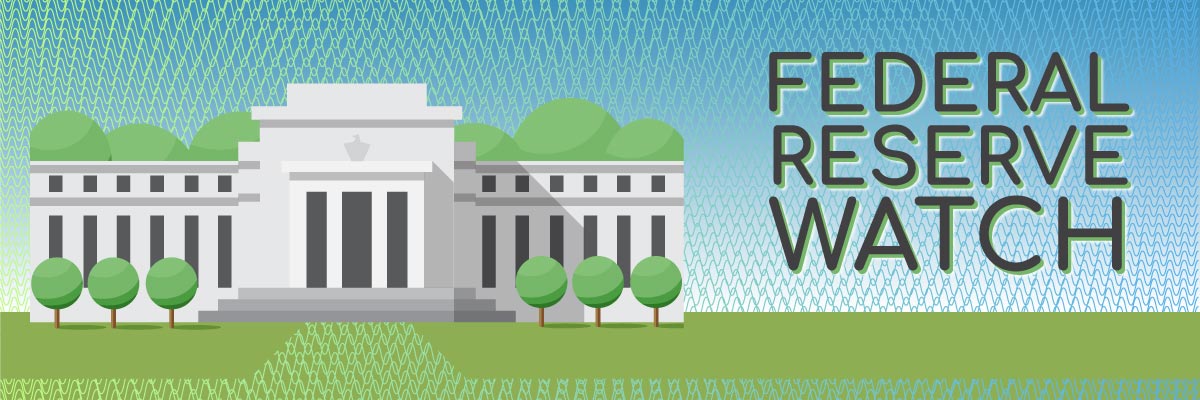What Do Federal Reserve Rate Hikes Mean for the Housing Market and for Your Business?
April 4, 2022

In March, the Federal Reserve raised the short-term federal funds rate by 0.25 percentage points. This rate hike was the first time the Fed has raised rates since December 2018. It is expected that the Fed will increase rates six more times this year. Increasing the short-term federal funds rate is designed to cool demand in the economy to bring down record-high inflation.
When the Fed raises rates, it generally makes it more costly to borrow money. While the Federal Reserve does not target mortgage rates directly, increases in short-term borrowing rates wind up leading to higher longer-term rates, as well.
So, what types of changes will we see now that the Fed has begun raising rates?
- Most types of consumer debt, including credit cards and car loans, will experience a rise in rates. Individuals and families with credit card debt will see a bump in their required minimum monthly payments. And anyone shopping for a car—if they can find one—will find it more costly to finance that purchase.
- Mortgage rates will rise further. Higher mortgage rates will make it harder for some buyers to get into the market. As a result, it is expected that buyer activity will cool in the year ahead, as the increase in mortgage rates pushes up monthly payments
Higher mortgage rates should slow price growth. Over the past year, prices have been rising at double digit rates in many local markets across Virginia. As mortgage rates rise, home price appreciation will slow, so instead of prices growing by ten percent, they may be up only three or four percent on an annual basis, which is in line with longer term price growth trends here in the commonwealth.
A rise in mortgage rates from those historically low levels will significantly slow the pace of refinancing activity. Many existing homeowners took advantage of low rates to refinance over the past couple of years. But for those who didn’t, the benefit of refinancing is on the decline as mortgage rates increase.
- Payments on loans with adjustable rates, including home equity lines of credit, will go up. Increases in interest rates will have the biggest impact on households with adjustable rate mortgages and lines of credit. Homeowners still have time to refinance loans into a longer-term fixed rate to avoid even higher rates in the future, but the time is growing short for those decisions.
- Savers will get a better return. When the Federal Reserve raises rates, savers see an increase in the interest paid on their savings accounts and certificates of deposits (CDs). This is good news for savers, since the interest on a typical savings account has been averaging around 0.50% or less, making it almost as profitable to just stuff the cash in your mattress instead of putting it in the bank. The higher returns on savings accounts won’t happen overnight because banks do not tend to boost rates quickly, and inflation will still take a big bite out of any increase in returns on personal savings.
In addition to raising short-term interest rates, the Federal Reserve is also poised to shrink its holdings of bonds and mortgage-backed securities, which will lead to further upward pressure on mortgage rates.
These actions are all intended to ease inflation. It is still an open question about whether the Federal Reserve will be able to negotiate a so-called “soft landing” where it raises interest rates enough to bring down inflation without jeopardizing economic growth. Raising rates too aggressively could lead to recession.
For now, Federal Reserve Chair Jerome Powell remains optimistic that the Fed can thread the needle; however, more economists are talking about the likelihood of a recession. If we do enter an economic downturn, that will have another dampening effect on housing demand but still likely will not create major problems in the housing market given the strong underlying demand.
You might also like…
RESPA & Joint Ventures: What Is Allowed?
By Laura M. Murray - March 6, 2023
We have heard reports that state Attorneys General may be taking an increased interest in certain joint venture arrangements between real estate licensees and settlement companies. Agents may… Read More
DPOR Update: Death or Disability of a Broker
By Laura M. Murray - December 5, 2022
In the 2022 Session, the General Assembly passed a law updating what happens in the event of the death or disability of a sole proprietor or sole broker… Read More
Wall Street Investors are Snapping Up Homes! Or are They?
By Dr. Lisa Sturtevant - March 7, 2022
Have you heard? Investors bought a record share of homes in 2021 and first-time homebuyers are being forced out of the market by Wall Street behemoths! The surge… Read More